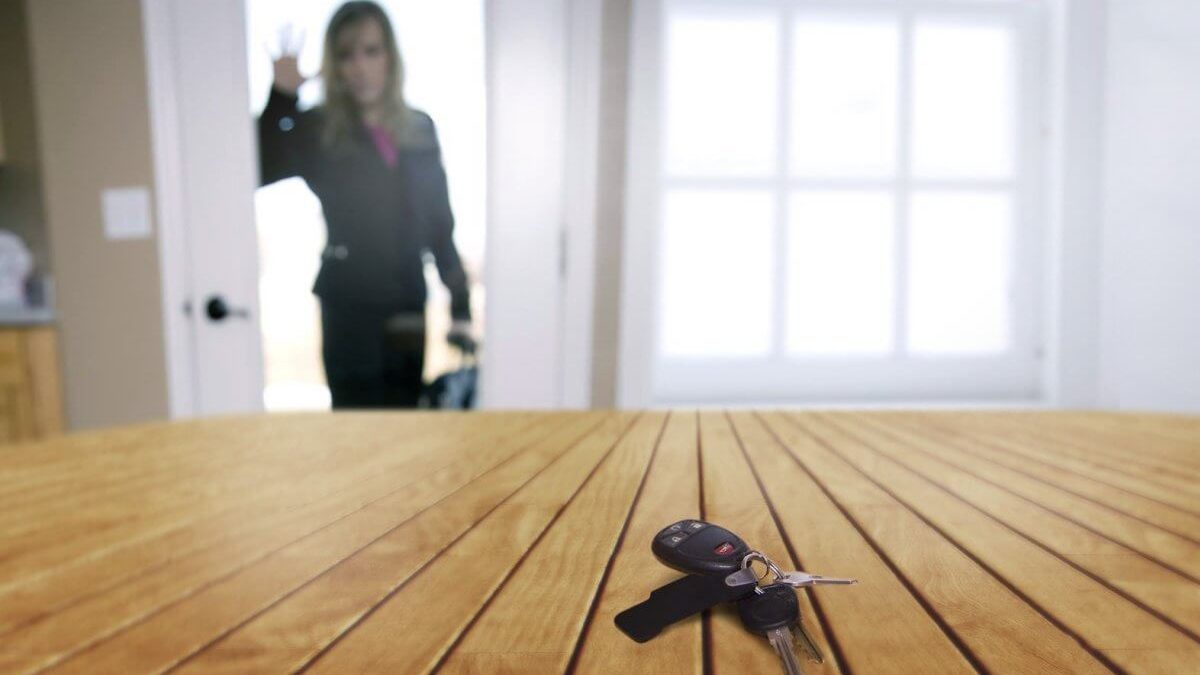As the door slams shut and you realise you’re stuck on the wrong side, key-less and clueless; it’s easy to lose your cool. There is nothing quite as universal as panicking when you lock yourself out, and we all know how annoying it can be when you’ve got places to be. But what should you do when you are locked out of your house? Well before you get replacement locks, read our guide on how to get back in and avoid ever being locked out again.
Don’t panic
Don’t start crying, shouting or generally losing the plot. Locking yourself out is just a part of life. It’s important that you don’t waste time by cursing the cruel Gods of Fate. In short: get a grip.
Also Read: 5 Handy Tips to Keep in Mind When Moving House
Breaking and entering
Only break into your house if you are confident you can do so with minimal damage. Here are some useful tips on breaking and entering if you’re feeling adventurous; armed with only a screw driver or credit card you might be able to gain access to your property. But there are other options if you don’t fancy risking a broken window pane.
Phone a friend
If you’ve got your phone with you, call for help. Is your partner or housemate somewhere around- maybe they can let you in? It might mean you have to wait outside your door in your slippers for two hours, but at least you know you’re eventually getting in. If you can’t get hold of anyone or you haven’t got your phone on you, there are still plenty of things you can do.
Friendly neighbours
Knock on doors and ask your neighbours for help; I’m sure they’ll let you borrow their phone to ring for help. It might even be an idea to leave a spare key with a trusted neighbour – this might actually be safer than the classic trick of hiding a spare key in your flowerpot!
In fact, it’s advisable never try to conceal your spare key somewhere ‘safe’, as a key hiding trick usually means criminals will easily gain access to your property.
What about a caretaker or landlord?
Have you got a caretaker on the premises? They often have spare keys, even if you haven’t had the foresight to stash one with a trusty key-holder in advance. Technically your landlord should also have a spare set of keys, but these days landlords don’t necessarily live nearby, so this may not be an option. Save your caretaker’s and landlord’s numbers in your mobile phone for future reference. It is a good idea to cultivate a relationship with them anyways- you never know when you might need their help.
Did you Leave Anything Dangerous On?
It can be quite easy to imagine the worse: that you left your curlers on or that the gas is on in the kitchen. More often than not this is just your mind going into overdrive, so try to separate fact from fiction. A dishwasher or washing machine going through its cycle is perfectly safe, and ovens won’t be immediately dangerous either.
Locksmiths
Locksmiths can be expensive, but you’ll probably be more than happy to cough up for being on the right side of the door. If the locksmith can’t pick the lock, they might have to get a bit more heavy-handed with your door, but generally locksmiths can gain access with very little collateral damage. Most cities have 24 hour locksmiths, so even at 3 AM you can count on these knights in shining armour.
It’s a good idea to let your landlord know if you are calling a locksmith; they might have a preferred supplier in mind.
How to Avoid Being Locked Out:
Besides not leaving your keys behind, there are some other things you can do:
- Have a local designated key-holder who you can get in touch with easily
- Always hang keys on a hook by the door, so they are the last thing you see before you go out
- Get door locks that close from the outside
- Door restrictions can be fitted to stop the door from shutting behind you
- Get your locks oiled and serviced regularly
Also Read: DIY Tips To Keep The Energy Bill Low In The Cold Months
Who’s most likely to lock themselves out?
According to locksmiths, the people most likely to lock themselves out are the elderly, busy mums and dads with kids in tow and repeat offenders.


Stay connected